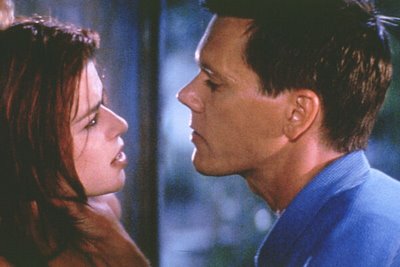A friend of mine who just finished school asked me if I could suggest some films for him to watch on Netflix Instant. Here are five more recommendations. Each of the films below were available on Netflix Instant in the USA at the time this was published.
Oslo, August 31st
Oslo, 31. august
2011, Norway
Joachim Trier
Joachim Trier's second film, following the marvelous Reprise (also available on Instant), readapts Pierre Drieu La Rochelle's novel Le feu follet (famously made for the screen by Louis Malle in 1963, as well as a little-seen made-for-French-television version in 1994), updating it to modern day Norway, chronicling roughly twenty-four-or-so hours in the life of recovering drug addict Anders (Anders Danielsen Lie) who is given leave from rehab for the first time in what appears to have been a while to interview for a job. Intimate and heartbreaking without being too austere, Oslo, August 31st is an assured, exceptional sophomore effort from the distant cousin of Lars von Trier and certainly one of the better films of 2011.
With: Anders Danielsen Lie, Hans Olav Brenner, Ingrid Olavs, Øystein Røger, Malin Crépin, Tone B. Mostraum, Kjærsti Odden Skjeldal, Johanne Kjellevik Ledang, Petter Width, Renate Reinsve, Anders Borchgrevink, Emil Lund, Andreas Braaten
1970, UK
Ken Russell
The late, great Ken Russell's own description of The Music Lovers as a film about a homosexual who falls in love with a nymphomaniac does accurately summarize this loose biopic of Peter Ilych Tchaikovsky (Richard Chamberlain), but The Music Lovers is so much more. I was lucky enough to have seen a beautiful print of the film at the Castro Theater earlier this year, which is truly the ideal way to watch any of Ken Russell's films (up to a point), but don't let that stop you from watching it at home. Following Tchaikovsky and his wife Nina (brilliantly played by Glenda Jackson), Russell surrounds these two individuals with a number of impossible love affairs, each of them branching off their own doomed marriage, which was unsuccessfully consummated in a riveting sequence on a train. Along with The Devils, The Music Lovers is one of the finest examples of Russell's signature style: frenzied, operatic, dazzling, cinematic decadence (at its finest).
With: Richard Chamberlain, Glenda Jackson, Max Adrian, Christopher Gable, Izabella Telezynska, Kenneth Colley, Maureen Pryor, Sabina Maydelle, Andrew Faulds, Bruce Robinson
1997, USA
Paul Verhoeven
Paul Verhoeven has only made one bad film in his entire career, and that was Hollow Man. So if anyone says that Showgirls, RoboCop, Total Recall, Basic Instinct, or Starship Troopers are bad films, rest assured that they're just plain wrong. Starship Troopers has everything you need in a film. It's enormously entertaining, weirdly erotic, intentionally hilarious (I've heard people try to say otherwise... again, they're wrong), kind of gross, and "secretly" really smart, which accurately describes all of Verhoeven's best work. Take for instance Rue McClanahan as an eye-patch-donning biology teacher, or Denise Richards as the good-girl brainiac Carmen Ibanez (all of the film's main characters come from a futuristic Buenos Aires where everyone is as American as they come, though still retaining Spanish names).
With: Casper Van Dien, Dina Meyer, Denise Richards, Patrick Muldoon, Neil Patrick Harris, Jake Busey, Clancy Brown, Michael Ironside, Marshall Bell, Rue McClanahan, Seth Gilliam, Brenda Strong, Lenore Kasdorf, Amy Smart
Love and Death
1975, USA/France
Woody Allen
In my personal favorite Woody Allen film, Stardust Memories, Allen's character is hounded by a bunch of annoying fans, one of whom complains that they preferred his "older, funnier movies." Love and Death is the best of Allen's actual "older, funnier movies," a hysterical farce about a bumbling coward (played by Allen), in love with his slutty cousin (Diane Keaton), who joins the Russian army to try to defeat Napoleon. It's a great mix of visual humor, common in his early works, and the quick wit he's best known for.
With: Woody Allen, Diane Keaton, Olga Georges-Picot, Harold Gould, Tony Jay, Jessica Harper, Henri Coutet, Despo Diamantidou, Féodor Atkine, Alfred Lutter, James Tolkan
Tomboy
2011, France
Céline Sciamma
It's no easy feat trying to depict the essence of adolescence on film without seeming too distant or nostalgic. Céline Sciamma's Tomboy does a rather exceptional job capturing the spirit of being a child, somewhere on your way to puberty. The French have always had a knack for this, from François Truffaut (not my favorite filmmaker by any means, but I still admire the way he films "la jeunesse") to films like Jacques Doillon's Ponette. In Tomboy, ten-year-old Laure (played by Zoé Héran, who already looks like a haute-couture runway model), a tall, lanky, androgynous girl, moves to a new town where she is mistaken for a boy by the neighborhood children and decides to invent a new identity for herself as Mikaël. Tomboy is considerably more interesting when it shows the interactions between the children; both its story and its lesson, while neither of them as obvious as you may think, are secondary.
With: Zoé Héran, Malonn Lévana, Jeanne Disson, Sophie Cattani, Mathieu Demy, Yohan Ventre, Noah Ventre, Cheyenne Lainé, Ryan Bonbeleri, Jeanne Dison














